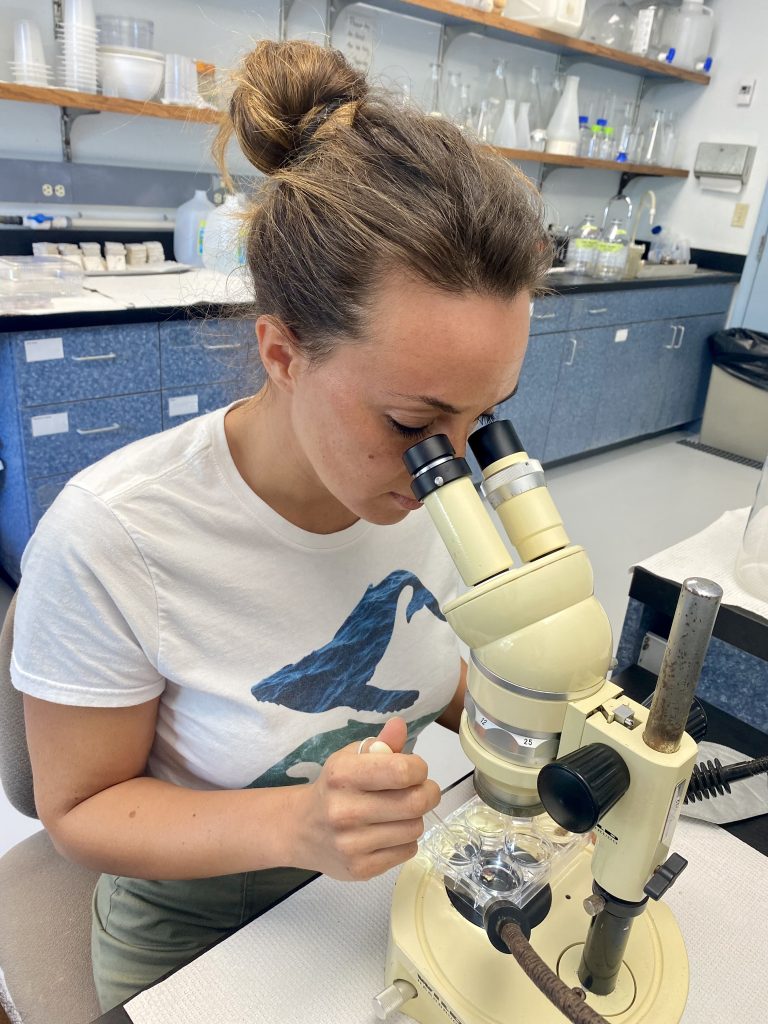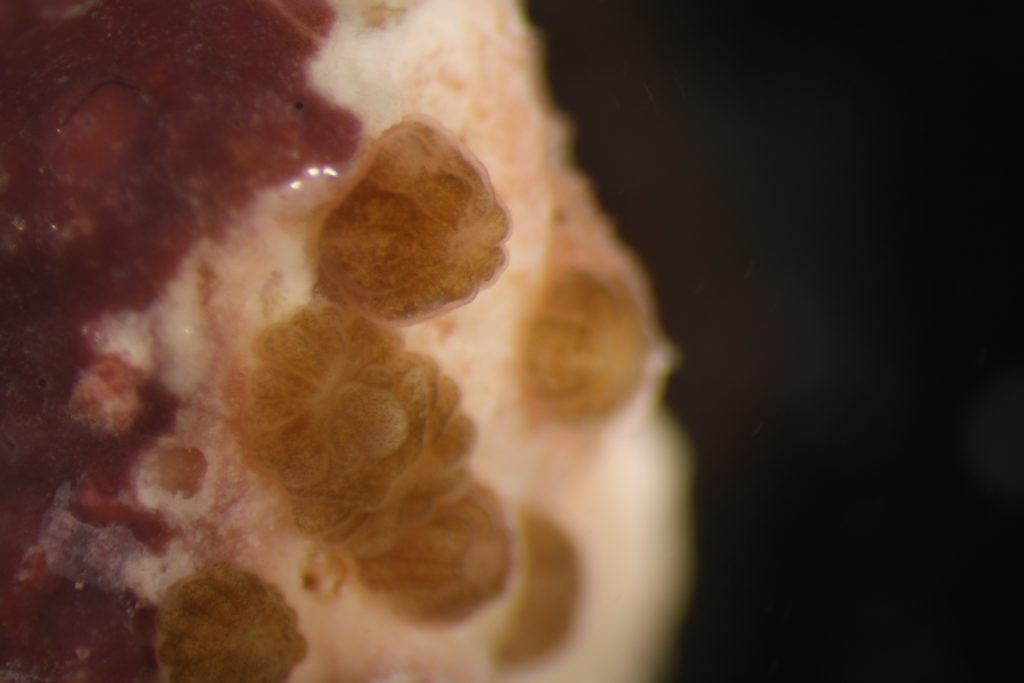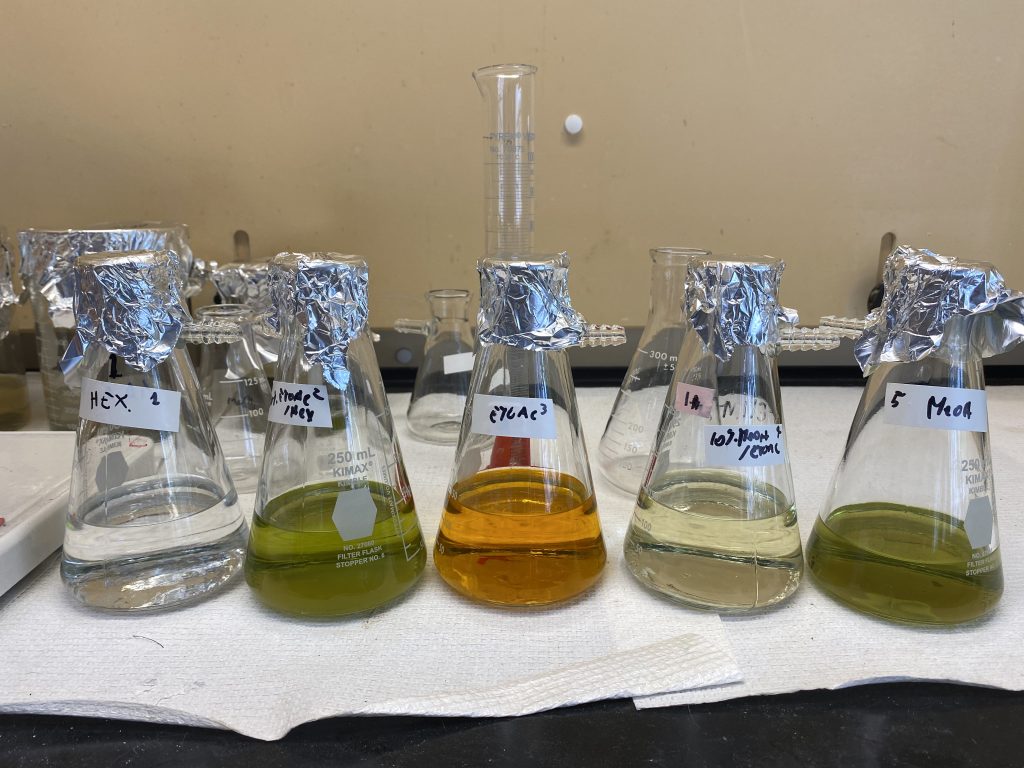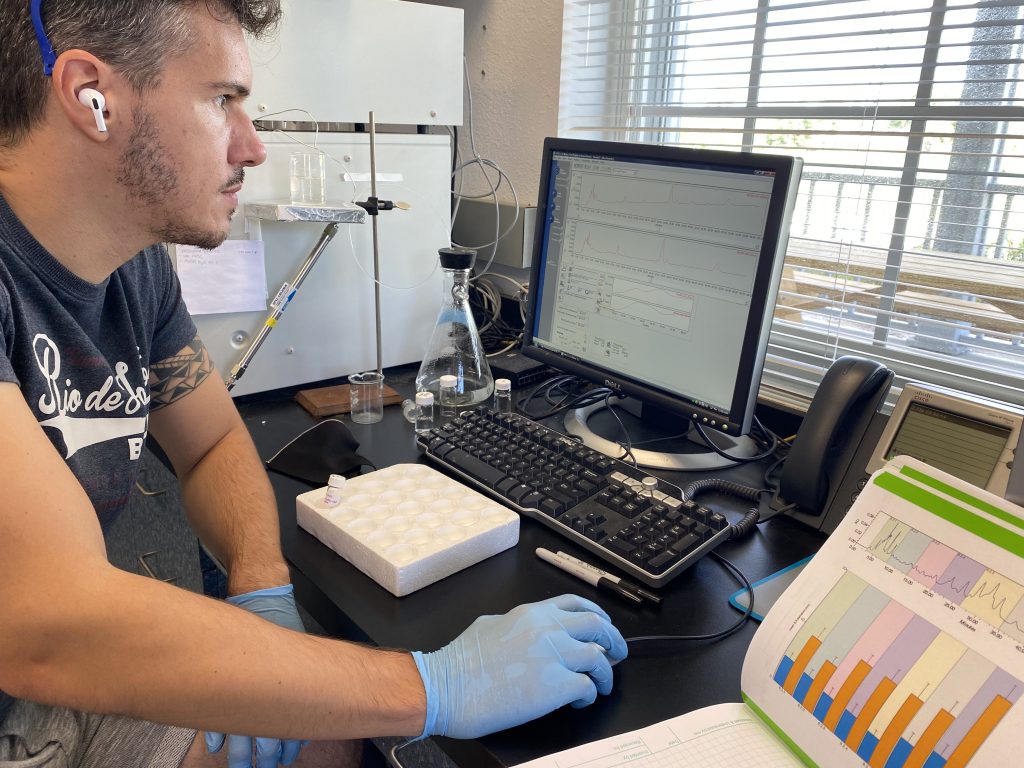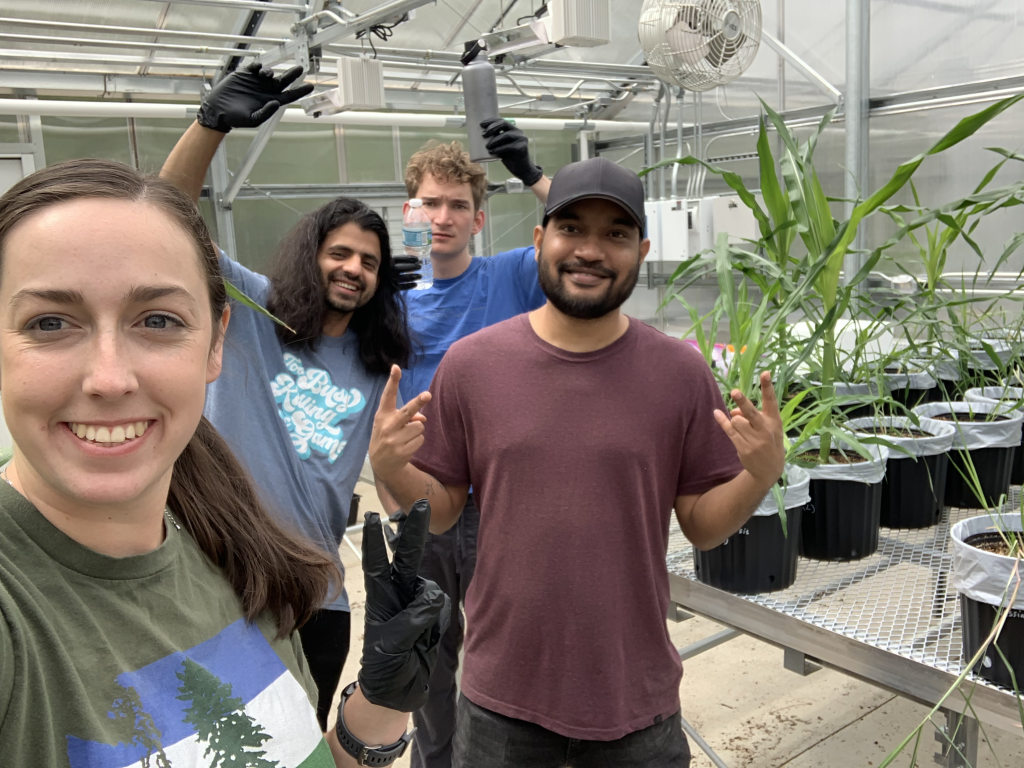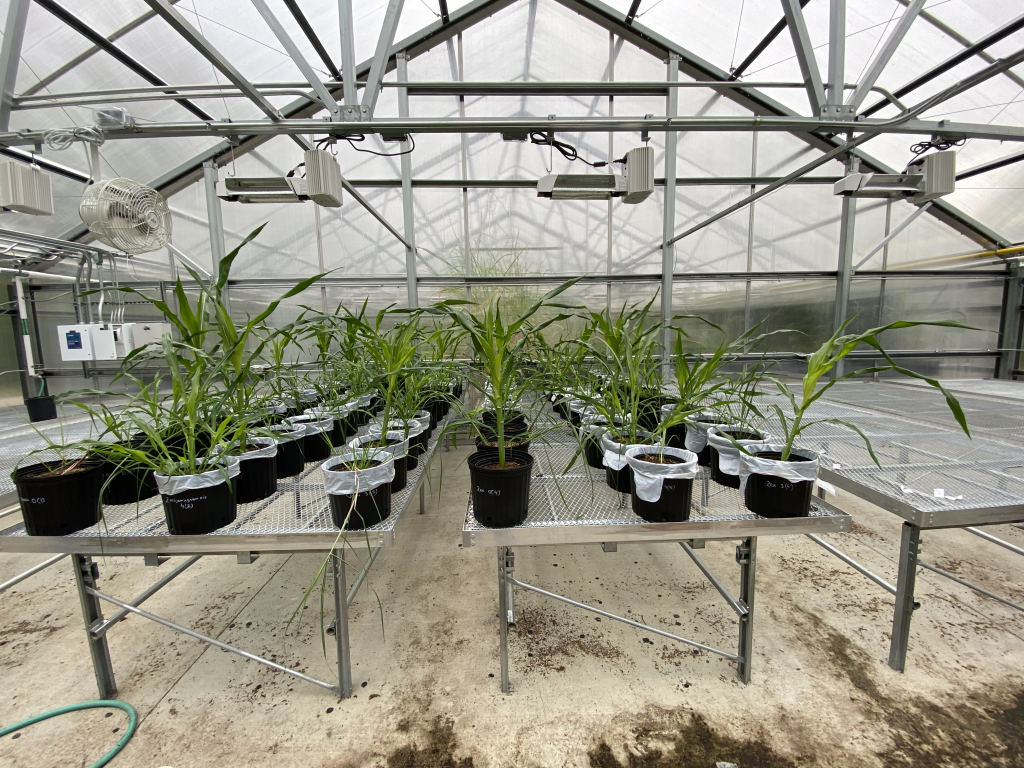For many members of the Department of Biological Sciences, summer is one of the most productive times of the year for research. Thanks to generous support of donors to the Department, we have several endowed research awards and summer fellowships that recognize talented and hard-working students and help support their research expenses or relieve them from summer teaching duties, enabling them to travel for field work or focus on experiments in the lab.
This summer, BSC Ph.D. candidates Aurora Giorgi and Matteo Monti conducted field- and laboratory-based research at the Smithsonian Marine Station in Fort Pierce, FL. Both received support from the Department through the Bishop-Stackman Marine Science Endowed Scholarship and the Carolyn Lawless and Janice Elizabeth Innes Research Award in Marine Sciences on top of prestigious Link Fellowships from the Smithsonian Institution.
Aurora investigated whether coral larval settlement is mediated by intrinsic factors (physical or chemical characteristics of crustose coralline algae (CCA) on which coral larvae settle), by extrinsic factors (metabolites produced by the surface microbial community of the CCA) or an interaction of both. To that end, she worked with two common algal species found in the Florida Keys and tested their ability to induce settlement of coral larvae before and after antibiotic treatment aimed at reducing the bacterial community living on the algal surface. When the larvae responded positively to CCA, algal chemical extracts were tested to identify the compounds responsible for settlement. Overall, Aurora discovered that larval response to CCA is species specific: one CCA species was shown to be an excellent substrate with or without its associated bacterial community while the other had significantly decreased larval settlement when the bacteria were reduced with antibiotics. Lastly, among 100 bacterial strains isolated from the surface of the CCA one species remarkably stood out as it was able to induce 70% larval settlement!
Matteo’s work focuses on the exploration of the mechanisms responsible for the success of octocorals in the Caribbean with emphasis on their resistance to diseases that have significantly reduced the cover of other corals. He explored the ability of octocoral-derived natural products to inhibit a suite of bacteria possibly implicated in causing the worst coral disease documented so far in the Caribbean and Western Atlantic: Stony Coral Tissue Loss Disease (SCTLD). Chemical extracts of four widespread octocorals were tested against a suite of pathogenic bacteria, demonstrating the production by octocorals of antimicrobial compounds that fight these pathogens. Subsequently, he performed experiments to identify the antimicrobial chemical compounds in two species of octocorals. Overall, his results provide possible explanations for the resistance of octocorals to SCTLD and contribute to the body of knowledge explaining the success of octocorals in the Caribbean reefs.
Sontosh Deb was the recipient of a Graduate Summer Research Fellowship in Ecology and Evolution. This summer, Sontosh stayed in Tuscaloosa where he conducted a study addressing the underlying genetic mechanisms associated with the origins of flooding tolerance in maize (corn) relatives. To do this, he designed a greenhouse experiment using one flooding-sensitive maize inbred line and three flooding-tolerant wild relatives. The studied species were subjected to three different flooding treatments and a total of 72 root and leaf tissue samples were collected for RNA extraction, transcriptome library preparation, and sequencing. He is using the sequencing data to investigate whether gene expression and recruited molecular pathways differ in maize compared to wild relatives in response to flooding. He is also conducting phylogenetic analysis of the differentially expressed genes to answer how the flooding response traits evolved in maize. Most cultivated maize is highly susceptible to flooding which leads to significant yield loss of this major crop worldwide. The identification of flooding tolerance genes will potentially help to develop flooding-tolerant cultivars, while the comparison of a crop to wild relatives demonstrates the need for crop scientists to look to nature for solutions to agricultural problems.
There are just a few examples of the exciting and important research being conducted by BSC graduate students. If you are interested in learning more about these awards and fellowships or helping to support graduate student research, visit the BSC website.
